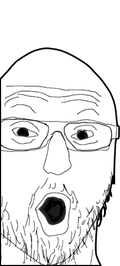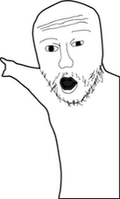I’ve read over 1,000 nonfiction books in my life, and these 33 are the most powerful of them all. I can honestly say they changed my life, who’s to say they won’t change yours too?
Don’t just take my word for it though. Read on for my summary of all 33 books and see for yourself how your next read might just change your life.
Nice, it gave me a chuckle!
- Rich Dad Poor Dad by Robert T. Kiyosaki
Fun fact: the author is broke.
If you hate self help books as much as I do, you should check out the podcast If Books Could Kill! They talk about how unqualified the authors are and how damaging their advice can be.
This list has a very “throw everything at the wall and see what sticks” feel to it.
On the Genealogy of Morals by Friedrich Nietzsche
No.
Anything, or anyone, that speaks positively of ‘Coddling of the American Mind’ should be approached with extreme scepticism.
An interesting resource for people looking to combat shit like this is the podcast ‘If Books Could Kill’.
I don’t nessecirily always agree with the hosts’ wider takes on things, but their reading of these types of books is pretty spot on.
These kinds of lists always make me laugh, because it takes a very specific world view and experience and assumes all must be like that. Atomic Habit I do agree partially on, but you know two books that have recently changed my life? Certainly not on the list here.
4,000 Weeks by Oliver Burkeman and The Little Book of Listening by Donna Duffey et. Al.
As someone who feels outside the domimate traits of society, Sensitive: The Hidden Power and The Power of Quiet are also books that changed my life in that I am embracing my own traits and talents, rather than struggle to adopt those more commonly sought after.
Four Thousand Weeks is excellent.
MAN’S SEARCH FOR MEANING BY VIKTOR E. FRANKL
This was pretty good, albeit as depressing as you think it’d be. If I could add a book here it’s “The Molecule of More” by Daniel Z. Lieberman, MD.
If you’ve ever wondered about drug addiction, relationships/honeymoon phase, mental illness or why you act the way you do instinctively, this is the book.
Rich Dad Poor Dad, really? Oooof. I’d never call that grifter “powerful”.
I thought the same thing. The list looked okay until I got to Rich Dad Poor Dad. I read the book. It is not worth recommending and definitely not one of the most powerful books written.
It’s worth a high level summary. I agree there’s some unconventional takes but a few are good.
Example: working class and middle class will vote to tax the rich. In reality the rich can pay to avoid the tax so the middle class ends up paying more.
That isn’t how taxes work. You don’t vote to raise taxes on the rich and accidentally raise taxes on the middle class. You can’t say not to raise taxes because rich might find loopholes. No one says we shouldn’t sentence people to prison because the most connected people might escape.
The author is somewhere over 1bil in debt and made everything up. He got lucky. Trying to follow his nonsense either won’t work or will fuck you. It’s not worth any summary because you’re not rich enough to escape the consequences and if you are you have been ways to steal money.
There is no “middle” and working class. Its just working and owning class, or he you’re a capitalist trying to sow division its lower, middle, then upper. But working class and middle class in the same sentence is like a semi acknowledgement of the truth of working and owning. Middle class is still largely working class though.
Read Paul Fussell’s books on the North American Class system:
the difference between Middle-Class & Working-Class is cultural, not income, and it’s rather indellible, too.
I’d now have Upper-Middle-Class, Financial-Class, Middle-Class, as distinct groups/cultures.
Middle-class judge you by your job-position.
Working-class judge you by your money.
The cultural-difference is profound.
Try getting an Upper-Middle-Class person to honestly accept you as valid, when you’re a homeless person ( despicable/inherently-nonvalid, human-garbage ) and they’re addicted to clawing all the Upper-Middle-Class status they can…
That can be quite educating.
Class-identity is as ancient as hierarchy in our society, so at least as old as agriculture, but I’d say it’s as old as village-chief, so … perhaps 0.5 million years, min.
Books that I find profounder, importanter, include Kegan & Lahey’s “Immunity to Change”, on our unconscious-mind’s automatic-fighting-off of growing-up, protecting entrenched-dysfunction, and how to correct/dismantle that sabotage.
Halvorson’s little, and important, “The 8 Motivational Challenges”.
Logan, King, & Fischer-Wright’s book condensing their research into something readable for us, “Tribal Leadership”, on the 5 cultural-process levels ( they wrongly identify them as “stages”, but stages, like Kegan-3, Kegan-4, etc, are irreversible ).
Moneyarchy has been crushing more & more & more lives into level-1 & level-2 culture, and there are consequences of that.
Level-1 is where mass-shootings arise from, and in 2023 the US had over 600 of them.
Level-2 is where conspiracism grows.
Not understanding that book should be considered criminal-negligence, for government-authority, nowadays.
Lanier’s “Foreign to Familiar”, and then Hofstede’s “Exploring Culture” show how the climate, the civilization, the culture, that we are born into, fundamentally-alter our “personality” in predictable ways.
John Truby’s “The Anatomy of Genres” and “The Anatomy of Story” should be considred required-reading for anybody who unconsciously uses story to form the story of their own meaning ( which is all of us ).
He’s got a couple of mistakes, as many profound books do, his concept of Village is insane, being Wild West Village, instead of the dozens-of-millenia old Tribal Mother Village, and his concept of humor is wrong, too, being based on “the drop”, which is a US thing, and not the core of humor, at all. The real core of humor, is being surprised by the improbable. Creative-misinterpretation humor shows this.
Hofstadter’s “Godel Escher Bach: and Eternal Golden Braid” is the core competence in all of Western Philosophy. All the Western Philosophers who reject, ignore, or don’t-understand, the core points in that book, are not competent in philosophy, period.
These books all outclass many of the books he’s recommending.
Thanks, that’s actuallyw a nice and thoughtful write up
Check out this podcast: If Books Could Kill #ifBooksCouldKill https://podcastaddict.com/podcast/if-books-could-kill/4135025 via @PodcastAddict
I’ll leave this here for cross-referencing.
The Innovator’s Dilemma
 “Did you know this was Steve Jobs’ favorite book?”
“Did you know this was Steve Jobs’ favorite book?” 
Rich Dad Poor Dad
Wow, this is life-changing, I knew it was poor people’s fault for being poor!

The Coddling of the American Mind
This new generation is turning into got-dang snowflakes!
I don’t see how any book could change my life, unless the book contained a million Euro for me to spend.
20% of these look mildly interesting 20% I’m familiar with the point they appear to try to make, but am not at all interested in the book 60% are cringe, I second ‘if books could kill.’
Came here to post a link to the podcast.
https://podcastaddict.com/podcast/if-books-could-kill/4135025
I saw a book in the thumbnail that I already own and was looking forward to reading, so I opened the article. At first I was thrown back by some of the shitty books on this list and a little bothered that the book I have would be clumped in with them - then I noticed that it actually went on the list. I’m a little relieved lol. Fwiw, it’s Behave by Robert Sapolsky.
The description given for Pinker’s The Blank Slate made me sceptical at best, so I went hunting for critiques and found this https://www.jstor.org/stable/27759451
Sadly it’s pay-walled beyond a preview of the first page.
For a suggestion of my own, The Mother Tongue by Bill Bryson. It’s a fun romp through the history of the English language with numerous tangents focusing on this or that quirk, written for those who have never formally studied English or linguistics.
As someone who was always more of a “STEM” person, this book completely upended my relationship to language. I used to think there was “one way” of expressing any given idea, and our job as humans, as it were, is to simply learn all the words and their meanings so as to be as precise as possible when expressing ideas. Nowadays I very much trend to see it the other way around: our use of language shapes the language itself, and our changing needs in terms of which ideas we want to express is what makes language evolve over time.
To put it succinctly, this book helped me view language as a tool that we should alter to suit our needs, not some pre-ordained scripture that we need to memorize and adjust ourselves to.









